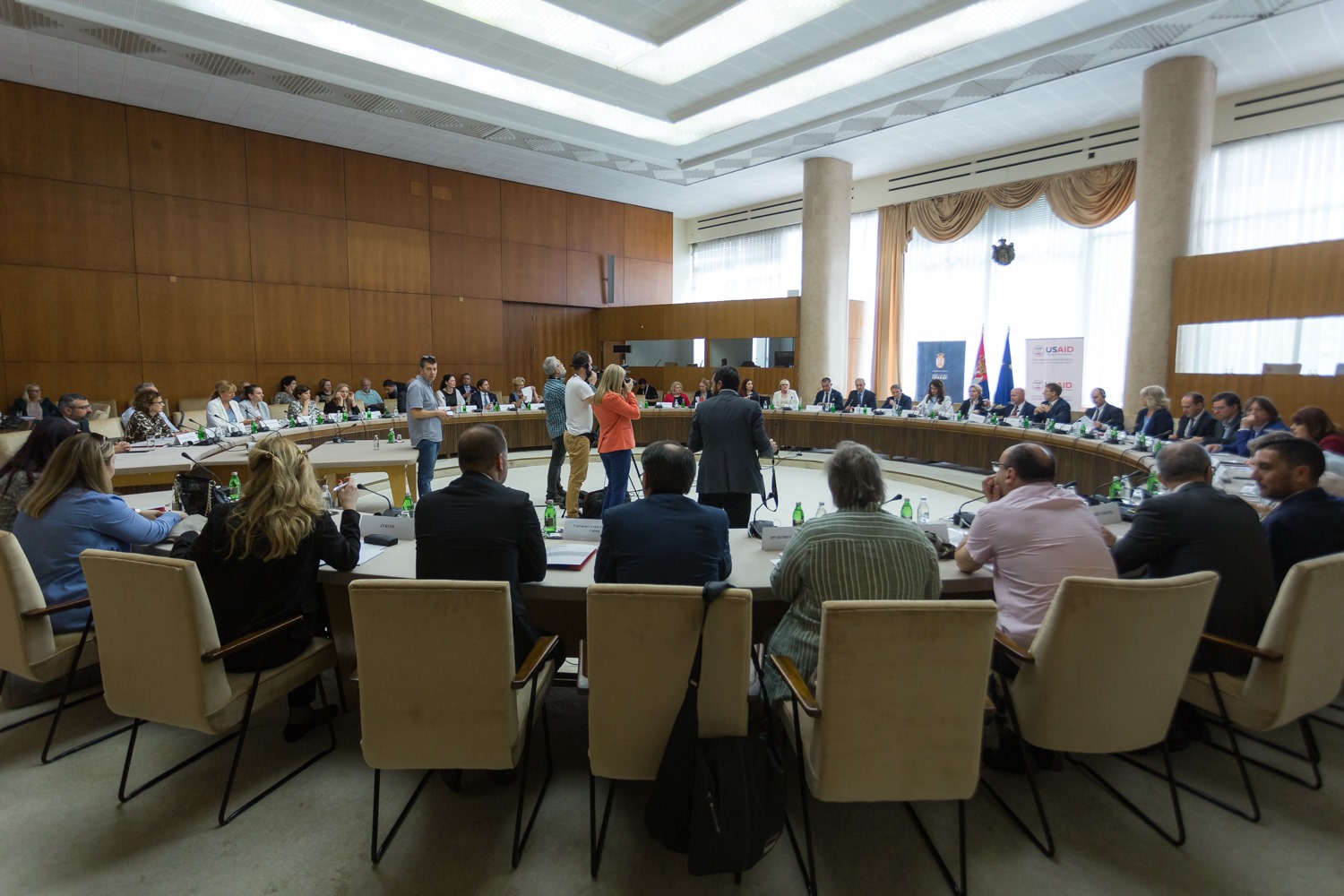DPI Assistance Solidifies the Framework for Judicial Reform in Serbia
15.07.2020
Serbia

In July 2020, the Government of Serbia adopted the new 2020-2025 Judicial Development Strategy. This is a Strategy of continuity that builds upon results achieved and challenges identified under the previous two strategic frameworks (2006-2011 and 2013-2018).
The new Strategy acknowledges the ongoing process of Constitutional changes and the resulting amendments to relevant judicial laws to bolster the independence, impartiality and competence of the judiciary, while at the same time shifting the focus away from prior ill-conceived tectonic reform initiatives that created system-wide upheaval (e.g. the reselection of judges and prosecutors). Instead, the Strategy reflects an increasing emphasis on improving judicial efficiency through the introduction of electronic and other services that are aimed at enabling time and cost-effective access to justice for citizens and businesses alike.
An independent and autonomous, modern and efficient judiciary, accountable and open to the citizens and society is the overall vision governing the five years of Strategy implementation. Its stated general objective is: Further strengthening of rule of law (Rechtsstaat), access to justice, and legal certainty for the purpose of a quality and efficient realization of the protection of rights and freedoms of citizens, and raising the level of trust in the judicial system.
Prior to providing support to the Ministry of Justice for drafting the new Strategy, the USAID’s Rule of Law Project completed an assessment of the implementation of Serbia’s previous 2013-2018 National Judicial Reform Strategy, identifying the priority areas for the new strategic framework. The new Strategy was developed with Project support through a highly-inclusive process, with participation of over 30 representatives of all relevant judicial institutions, various legal and judicial professional associations, and civil society. The working text of the Strategy was adopted through wide consensus within the working group in April 2019, with four subsequent public hearings on the draft text held prior to its adoption.
The Strategy has been fully harmonized with the revised Chapter 23 Action Plan (AP23) with the aim of ensuring full coherence between the two most important frameworks governing the progress of judicial reforms in Serbia. The AP23 now spells out the measures and activities in detail that will be taken by the Government of Serbia to achieve the objectives of the Strategy, and will now serve as the single monitoring framework to gauge progress under the Strategy’s objectives and measures and Serbia’s road to fulfilling the requirements under the Chapter 23 interim benchmarks.